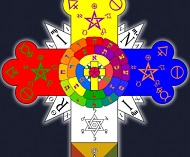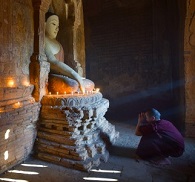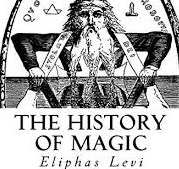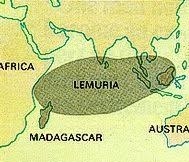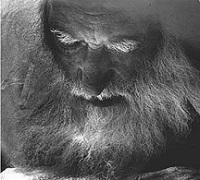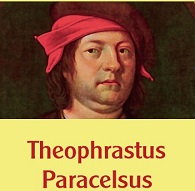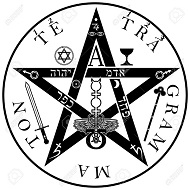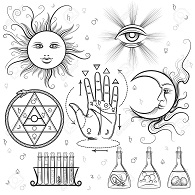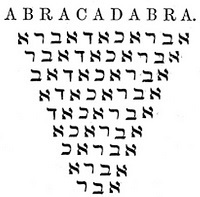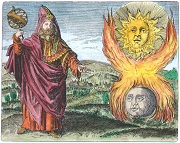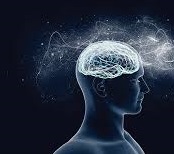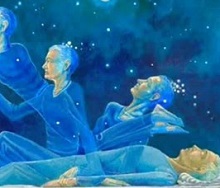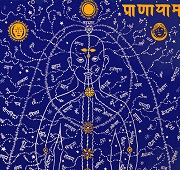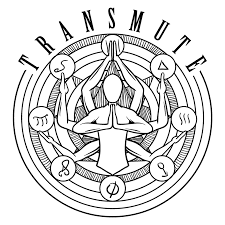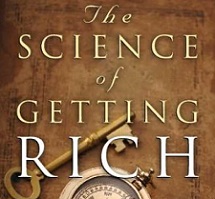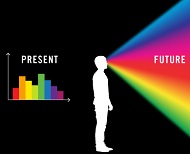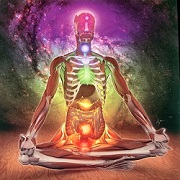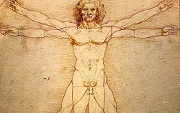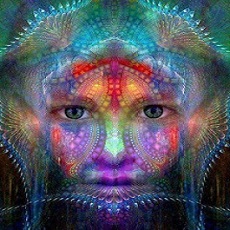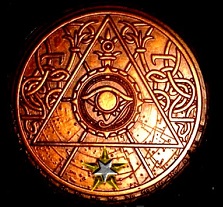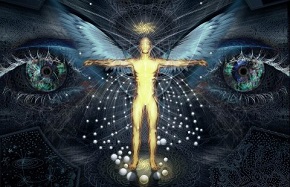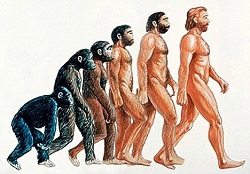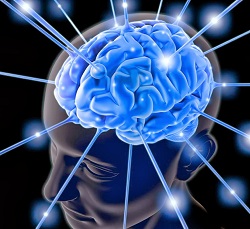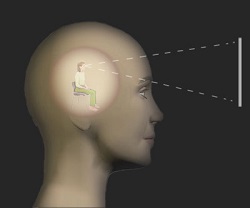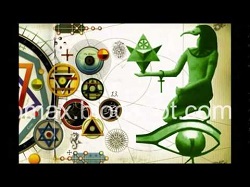Meditation, Creation and Concentration (Richard Ingalese)
All religions invent modes whereby the mind of man is directed to Deity. In the Eastern philosophy these modes are called Yoga, and are supposed to be methods of yoking the individual
mind to the Universal Consciousness. There are two principal kinds of yoga, which may be described as mental and as physical. The first is a process of meditation, by which the individual
mind is brought into closer relationship with the Universal Consciousness; the second or physical yoga, is of various kinds, and includes methods of artificial breathings and unusual and unnatural
postures of the body. These postures and breathings are for the purpose of drawing into the physical body certain forces which develop psychic powers. It is believed by those who practice them that
a step nearer Deity is gained by so doing; but in point of fact only certain psychic centers in the physical body are awakened, which enable these persons to function upon the first plane beyond the material.
The ecstatic conditions into which the Yogi are often thrown by indulging in these practices are not spiritual states of consciousness, as many persons believe, but are entirely due to paroxysms of emotion to
which they yield, and which are disastrous to those who indulge in them.
In Judaism we find again a great system of ritualism, which is second only to that of Buddhism;
but the ritualism of Judaism was established for a material people, it used material processes for
carrying out its ritual and never reached the point where it operated upon mental lines. For example,
in Judaism we find the cutting of the throats of animals and the flowing of blood. This was a sacrificial
rite and was supposed to attract the attention of the Deity, through His love for the shedding of blood,
to propitiate Him, and induce Him to give to whomever made this sacrifice something of much more value
than were the animals slaughtered. It was not for the sake of spirituality that these rites were performed,
but for material gain only.

And then came Christianity, represented in the West by the two great sects, Catholicism on the
one hand, and Protestantism on the other. These also use a process to relate the individual consciousness to the Universal, which is called prayer or petition. The ritual in Catholicism is on the same general lines as in Buddhism, because many of its rites were obtained from Buddhism. For example, there are three forms of prayer in Catholicism: the Latria, or prayer direct to Deity; Hyperdulia, or prayer to Deity through the intercession of the saints or the Virgin Mary, and the
Doulia, or prayer to a special patron saint; in Protestantism the prayer is made directly to Jehovah.
Whether we consider the old religions of the world, or the most modern, each has invented a
process for relating the mind back to the Universal Consciousness, and all these rites are for one
purpose - personal gain.
Some of you may be shocked by this declaration, but upon close analysis you will find it true. In
Buddhism the object of relating the individual mind to the Universal Consciousness is the hope
for liberation from rebirth; it is purely a question of benefit to the individual. In Judaism a bargain
between the individual and the Universal was made. In return for prayers and praise and
sacrifices, God was supposed to give men things which they wanted. In Catholicism, in exchange
for prayers and chanting, God gave men mental or spiritual qualities and personal salvation; but
they, too, can obtain material things by doing a Novena. This last process of prayer is not made
to God direct, but to Saint Anthony, and if the conditions required by this Saint are all fulfilled,
the prayer is answered. In Protestantism the prayer may be for personal health, for a person going
to sea, or for the kingdom of heaven, or for something else - it all comes back to a matter of personal benefit.
The Christian and Mental Scientists have adopted from the Orient a process of meditation called
"going into the silence." This attitude of mind is for the purpose of harmonizing the individual
mind with the Universal, in order that the individual may receive thoughts and things that it desires, and is a form of prayer along more rational and scientific lines. Occultism, too, has its processes for the purpose of relating the individual mind to the Universal Consciousness, in order
that it may draw such spiritual, mental and material things as the individual needs or wants.
The question arises, how can this relation be brought about, because we all need something spiritual,
mental or material, and in our hearts we wish to know how to use our minds in order to obtain the qualities
or things desired. The three working tools or methods of mind that the Occultist takes for the purpose of
connecting his consciousness with the Universal, are the processes known as Meditation, Creation and Concentration.
We have spoken repeatedly of mind, and now we will say something about thought. Thought is
the product of mind; it is a rate of vibration sent forth from mind, and therefore is force. This
thought force is continually being used or misused, because to live is to think, either rightly or
wrongly, with the objective or subjective mind. Thought, per se, is neither good nor bad, but, like
any other force, the use of it determines its character.
Thought has one chief characteristic, I might almost say but one characteristic, and that is vibration. From this standpoint we may divide thought into two general classes, that of the positive and negative. Positive thought is a high rate of vibration sent forth from the mind, and negative thought is a low rate of vibration.
You remember that the will is the positive side of the subjective mind, and corresponds to the desire or the positive side of the objective mind. The will plays a very important part in human affairs, whether it becomes active in the subjective mind as will power, or whether it operates in
the objective mind as desire. In connection with thought the will has three functions:
First. It determines the nature of the thought sent forth from the mind, whether it be constructive
or destructive.
Second. Will determines the intensity of the thought, whether it shall vibrate at a high rate and
travel with great rapidity, or whether it shall proceed at a low rate, and reach but a short distance.
In other words, the will determines whether the thought shall be positive or negative.
Third. Will determines the direction of thought; that is, the person, place or thing to which it
shall be sent and how long it shall remain in each place.
Knowing the functions of this tremendous force, which in its higher aspects is latent in most persons, you can see how essential it is that it should be awakened; for, like the muscles of the body, will grows stronger with use. It is left with each of us to determine whether we shall remain infirm of purpose and weak in will, or awaken, and arouse this force and use it for our upbuilding.
Without the activity of will no one can hope to become an Occultist, because his mental force is
to him what the engine is to the engineer.
You may be interested in this conference: "Positive Thinking and Persistency are Invincible."
Reading Support:





